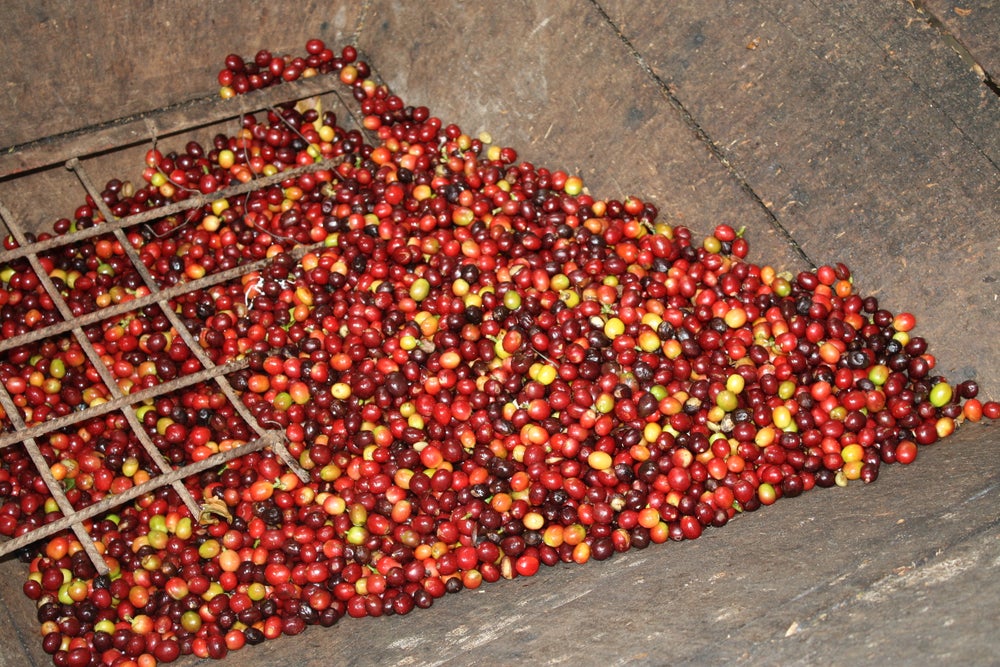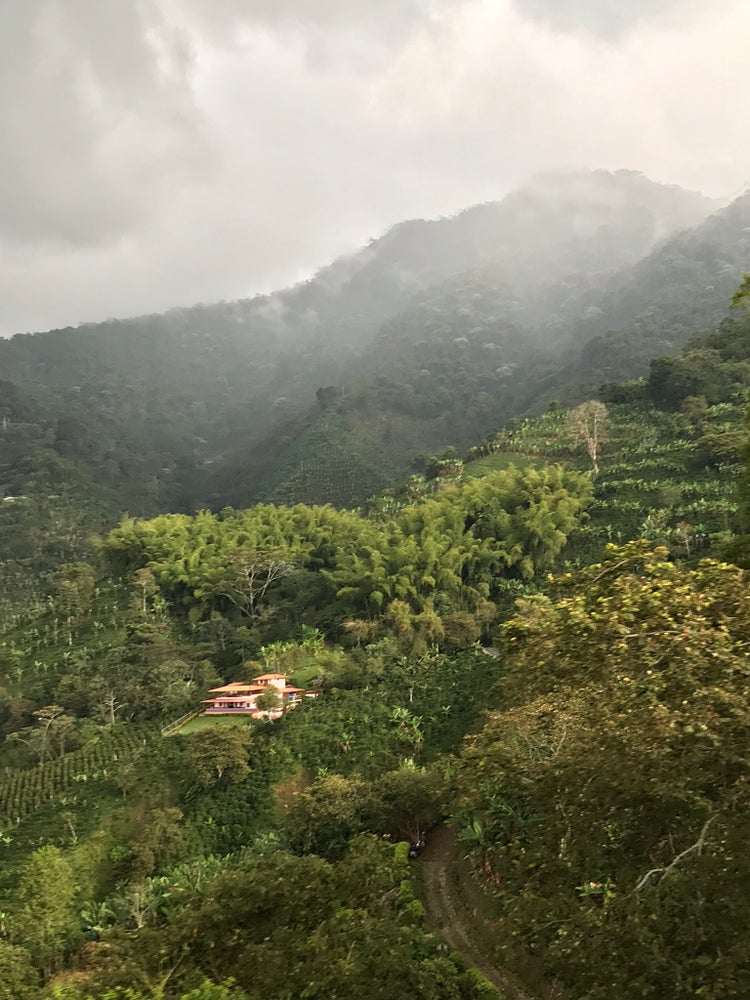About This Coffee
Over the years, the term Excelso has held a few different meanings. What has not changed, however, is that only the best Colombian coffees are permitted to be exported.
Excelso is supplied in steady volume throughout the year. It displays a reliably distinctive combination of body and acidity.
Young consumers are driving decaf’s resurgence and, like their caffeine-drinking peers, they’re expecting high-quality coffees that are often traceable and certified. With more than 50% of the world’s population under 30, the demand for decaffeinated coffee – and the need for specialty decaf that tastes good and meets ethical or environmental standards – is rising.
Swiss Water offers an alternative to consumers concerned by methyl chloride (MC) and ethyl acetate (EA) processes. Because water processing does not use added chemical compounds, coffees can maintain organic certifications and customers can be assured of the absence of additional chemicals.
The difficulty of decaffeination is that many of the flavor compounds that give coffee its excellent taste are, like caffeine, water-soluble. Thus, any decaffeination method needs to effectively single out and remove the caffeine molecule while preserving as many of the flavor compounds as possible.
The process begins with a batch of green coffee beans that are soaked in water to remove the caffeine. In water, many of the flavor compounds are also removed as well, but don’t worry! This is intentional and will preserve help flavor in the future.
This first batch of beans are then discarded. This process only needs to happen once because the mixture produced by soaking those beans, called green coffee extract (GCE), can be maintained and reused to decaffeinate many batches of green beans.
The principle behind water processing is that water can only absorb a set amount of flavor compounds and caffeine before it is completely saturated. When water is fully saturated, it cannot accept (and remove) any more flavor compounds, even if they’re in the coffee. That first batch of beans created a fully saturated water mixture, the GCE. In order to process the beans for decaffeination, the GCE is run through a filter to remove only the caffeine.
Now the GCE is fully saturated except for caffeine. When a new batch of green beans are placed in the GCE, the only compound from the new beans that will be accepted into the GCE is caffeine, everything else will remain in the beans because the GCE is already saturated with those chemicals and unable to ‘take’ anymore.
SWP decaf composition varies from lot to lot, but SWP does provide traceability info. Please reach out to sparcom@sucafina.com if you need any help tracing your lot.
Coffee in Colombia
Colombia has been producing and exporting coffee renowned for their full body, bright acidity and rich aftertaste, since the early 19th century.
Colombia boasts a wide range of climates and geographic conditions that, in turn, produce their own unique flavors in coffee. This also means that harvest times can vary quite a bit. In fact, between all its different regions, Colombia produces fresh crop nearly all year round.
The increasing focus on the specialty industry is changing the way traders and farmers do business. It is becoming more common for farmers to isolate the highest quality beans in their lots to market separately. These higher-quality lots are often sold under specific brands or stories.
Besides its wide variety of cup profiles, Colombia has quickly expanded its certification options over the past 10 years. The most common certifications available are Fairtrade, Rainforest Alliance, UTZ and Organic.

